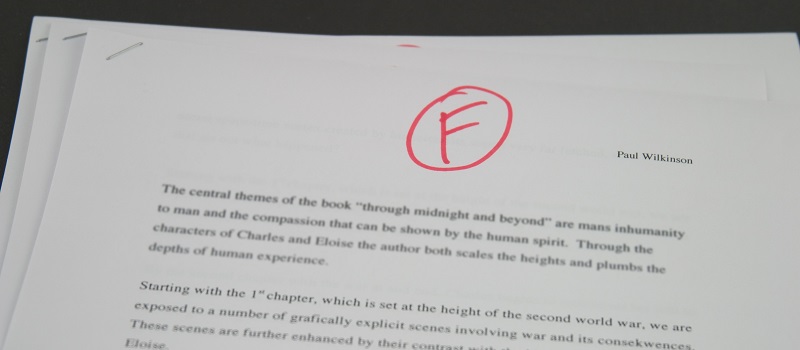Dear Students,
Most of you don’t have cause to know this, because most of you do your best not to plagiarize, but I am very strict about plagiarism. I take plagiarism seriously because I believe that as a teacher it is my job to prepare students for their futures, and I know that academic dishonesty, and really any deceptive behavior, can create huge problems for students in school, in college and in the workplace.
But you already know all this, and have already read about how plagiarism is stealing and lying, so I decided to write a very honest letter about plagiarism from me (the teacher) to you (the student), to dispel misapprehensions.
I do not enjoy “catching” students who are plagiarizing.
Not only does it require me to start a time-consuming process to inform the student and/or parent, it’s also discouraging. Students plagiarize for a lot of different reasons: they didn’t know they were plagiarizing, they didn’t understand the assignment, they are worried about time constraint, they didn’t care about the assignment, they thought the assignment was not useful, they thought they wouldn’t get caught, etc. All of these reasons are discouraging to me as a teacher.
I don’t assume a student is plagiarizing because a report is well-written.
I know that I have students who are absolutely amazing writers, and even if I see something suspicious, I try to give students the benefit of the doubt. (If you want to see a list of things that makes me suspicious, please stay tuned for Part 2.)

I have the technological skills needed to recognize plagiarism.
Many students seem to assume that their teachers don’t know enough about technology to catch them. This might be true in rare cases, but it is not true of most of your teachers. While I am an adult, I’m also still technically a “millennial”. I grew up with a computer and the Internet. I use the Internet on a daily basis not just for work, but to read articles and communicate with friends and family. Obtaining my undergraduate and graduate degree also required me to become very familiar with online research. And this is not just true of me; most teachers are familiar with computers and technology. At the very least, we know how to google a question, click on the top links, and find an answer that matches word-for-word what a student submitted.
Turning in a doctored Grammarly report is not a failsafe way to get away with cheating.
Here’s the thing: Grammarly is a tool for you to see how you are doing in your essay. It is a way for you receive feedback from another source, and it is a way for us to see that you are being held accountable. However, I also have a Grammarly account. If I’m suspicious, I’m going to copy your report into my Grammarly account, and if your report does not match my report (as in, large sections of your essay have been plagiarized, but your report states 0% plagiarism), it looks bad for you.
I know plagiarism is a difficult topic to discuss, and the last thing I would want to do it make someone feel like I am accusing him or her. I do, in fact, know that the majority of my students don’t plagiarize. But I also know that in a digital age where everything is at your fingertips it’s a temptation and that understanding what is and isn’t plagiarism is difficult. So I am asking you to engage with your teachers on this topic and let them know if you have any questions or comments.
Read the second installment in this series discussing plagiarism: Part 1: What Sets Off My Teacher Spidey-Senses?
Enlightium Academy is an accredited alternative schooling option for educating your child from home. Our program offers the comfort of a homeschool environment with a quality private school curriculum. Enlightium Academy is a private Christian school that offers a Bible-based, flexible, accredited, teacher supported, and affordable education. Enlightium Academy meets all accreditation and state education requirements for all 50 states, while neither using the state curriculum or Common Core.
